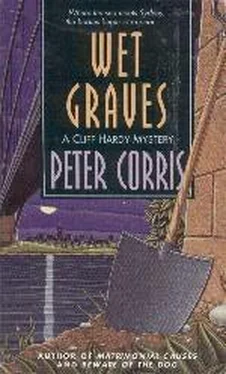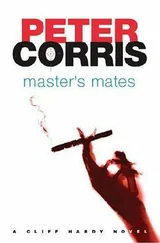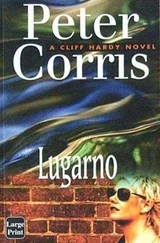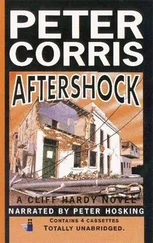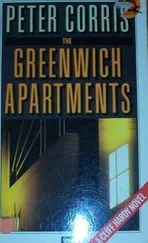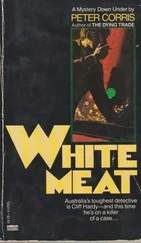Peter Corris - Wet Graves
Здесь есть возможность читать онлайн «Peter Corris - Wet Graves» весь текст электронной книги совершенно бесплатно (целиком полную версию без сокращений). В некоторых случаях можно слушать аудио, скачать через торрент в формате fb2 и присутствует краткое содержание. Жанр: Криминальный детектив, на английском языке. Описание произведения, (предисловие) а так же отзывы посетителей доступны на портале библиотеки ЛибКат.
- Название:Wet Graves
- Автор:
- Жанр:
- Год:неизвестен
- ISBN:нет данных
- Рейтинг книги:5 / 5. Голосов: 1
-
Избранное:Добавить в избранное
- Отзывы:
-
Ваша оценка:
- 100
- 1
- 2
- 3
- 4
- 5
Wet Graves: краткое содержание, описание и аннотация
Предлагаем к чтению аннотацию, описание, краткое содержание или предисловие (зависит от того, что написал сам автор книги «Wet Graves»). Если вы не нашли необходимую информацию о книге — напишите в комментариях, мы постараемся отыскать её.
Wet Graves — читать онлайн бесплатно полную книгу (весь текст) целиком
Ниже представлен текст книги, разбитый по страницам. Система сохранения места последней прочитанной страницы, позволяет с удобством читать онлайн бесплатно книгу «Wet Graves», без необходимости каждый раз заново искать на чём Вы остановились. Поставьте закладку, и сможете в любой момент перейти на страницу, на которой закончили чтение.
Интервал:
Закладка:
“No, no.” Lithgow sipped his sherry with evident enjoyment. “I was working away. I did talk to old Stan from time to time, but there wasn’t much he could tell me, you know. The bridge is terribly important to the history of the area, but it’s not the whole story by any means.”
I nodded. “He was obsessed, you mean?”
“I’m afraid so. And he had some followers still. In point of fact, they held a little meeting here that day and a few stayed behind after Stan left to keep his vigil. I think one of them might have arrived too late to see Stan. They’re old, you see and not always too sure of the time.”
“You know about that, the bridge at sunset thing?”
“Oh, yes. Now look, I don’t want you to think I’m a terrible snooper, I’m not. But I do keep a diary and I did provide them with a bottle of sherry.” He held up his glass so that the light shone through the clear, pale liquid. “Not this stuff, of course.”
I was leaning forward eagerly, too eagerly. I tried to transfer the enthusiasm to the sherry, holding up my own glass to the light and taking a long sip. “It is very good. Do you mean you know the names of the men who were here that day?”
“Yes, I believe so. Why? Is it important?”
I improvised fast. “Well, one of them will probably become the head of the society now, wouldn’t you say? If I can talk to him I can still do the story as planned.”
Lithgow frowned and drank some more sherry. “Yes. See what you mean. Just a minute. I should have the names in my diary. Poor old chaps, quite mad, you know. Quite mad.”
18
While he was rummaging in his papers I stood up and took a look out the window. I hadn’t seen it at first because of the way the light fell on the glass, but the view of the bridge was breathtaking. The structure seemed to rise up almost beneath my feet, and to dominate the near and far distance.
“Wonderful, isn’t it?” Lithgow said. “One of the reasons I took the room.”
“It sure is.” I turned away from the window. “How’re you doing there?”
He seemed to have difficulty tearing his eyes away from the view. “Oh, I’m pretty sure I can turn it up. Hold on a minute. Another sherry?”
I shook my head and tried to curb my impatience. For all I knew, Betty Tracey might stay in some pub all day, or she might’ve gone to the shop for a packet of tea. I noticed a large mug sitting on the floor near where Lithgow had been working. It was red-rimmed inside. Soup and sherry, I thought. Well, it’s his stomach. I examined the photograph on Lithgow’s chest of drawers. There was a strong family resemblance. The soldier had the same broad, high forehead and wide jaw. His face, like Lithgow’s, looked almost too big for the shoulders. Same light eyes and relaxed expression. Lieutenant Lithgow, 1st AIF. Several campaign ribbons, carefully tinted by the photographer.
“My father,” Lithgow said. “He was at Gallipoli and the Somme.”
“I had a grandfather did the same,” I said. “Then he went off and got himself killed in the north Russia campaign. How’d your father come out of it all?”
“Were you in the army yourself?”
I nodded. “Malaya. You?”
Lithgow didn’t reply. He held up a card. “Here we are. The date was the 12th, right?”
“That sounds right.”
“Stan had three visitors-Perce Templeton, Harry Case and Merv Dent. With old Stan himself, I think that made up the whole of the society.”
I wrote the names down, trying not to seem overly anxious. “They were still here when Stan left?”
“I think so. Yes.”
“Uh huh. Well, I wonder which of them I should see. You say one arrived late. Maybe the least keen. One of the others’d be more likely to go into the chair, wouldn’t you say?”
“I really don’t know.”
“Who was the late one?”
Lithgow shrugged. “I couldn’t say.”
“Never mind. This is very helpful, Mr Lithgow. You wouldn’t have any addresses, would you?”
Lithgow examined his card. “I believe Messrs Templeton and Case live at a retirement village in Gladesville. Mr Dent lives somewhere hereabouts. I’ve used him as a source. Let me see.” He went back to rummaging. “Ah, yes. Twenty-two Windmill Lane.”
I made notes. There was a drop or two left in my sherry glass. I drained them and put the glass down in front of the portrait of the soldier. “Many thanks, Mr Lithgow. Big help.” I found myself imitating his clipped speech. Definitely time to go. We shook hands, and he ushered me out as far as the landing.
I went down the stairs and out the front door quickly. No Betty Tracey in sight. A few curious faces at the louvre windows, but no problems. I went to my car and located Windmill Lane in the Gregory’s. It was a short stroll away. It was a fair bet that the pair who lived in Gladesville arrived together; that made it likely that Dent, who lived close by, was the late one. That was consistent with human nature. The late one was the most likely to have heard me talking to Betty Tracey. I knew I was drawing a long bow. Maybe the man I’d seen enter a house ahead of me in Pump Street on my first visit hadn’t entered 43A; maybe he hadn’t noticed me at all. Maybe he wasn’t Merv Dent. Maybe Stan Livermore had simply fallen and hit his head. I took out my notes and checked through the list of names of men injured in the bridge construction. All three names Lithgow had given me appeared. I shoved the directory back in the glovebox, locked the car and headed for Windmill Lane.
At the top of Pump Street I got another angle on the bridge, different from the view from Lithgow’s window. Now it looked less impressive, as if it was too big for the job it was doing. The water it spanned didn’t seem to need such massive engineering to master it. Still, it was always going to be more interesting than the tunnel. I thought I could see a yellow stain in the water in the area where the tunnelling work was going on. But that might have been my anti-tunnel imagination at work. A few metres down the steep street, and the water and bridge disappeared.
Windmill Street had probably never looked so good before in its long history. The houses had been cleaned up and repainted in colonial colours; the new paving was in keeping with the buildings, and something green was growing in almost every place it was possible for something green to grow. The harmony was putting me in the wrong mood. I was possibly about to face a multiple killer; a man with an obsession that was stronger to him than the claims of human life. A twisted individual: we’re all twisted, but some twists are more dangerous than others… I was trying to build up some aggression. I should have had the taste of tobacco and beer in my mouth, not good dry sherry.
As I turned into Windmill Lane, I realised that my attitude was mainly one of curiosity rather than anger. I had questions rather than accusations. What forces could prompt a man to kill repeatedly? Why had he waited so long to begin killing, or had he waited? The cases of death and disappearance I was confronting now-were they only the tip of an iceberg? How had the executions been managed and what justifications would the executioner have? The lane was cobblestoned in the same way as the area behind the houses in Pump Street. But here the worn-down stones were firmly set, and the gutters had been renewed where years of running water had eaten away the stone. One side of the lane was completely taken up by a succession of brick fences of varying heights. Gardening had been going on here, too. The fences were covered in leafless wisteria and other vines.
The houses were on the other side, facing towards the water. Cute, narrow terraces, very scrubbed up, with brass knockers and painted wrought iron. There were ten houses in the lane, numbering from one to ten. There was no number twenty-two, and this part of the Rocks had been untouched by developer or restorer. There never had been a number twenty-two.
Читать дальшеИнтервал:
Закладка:
Похожие книги на «Wet Graves»
Представляем Вашему вниманию похожие книги на «Wet Graves» списком для выбора. Мы отобрали схожую по названию и смыслу литературу в надежде предоставить читателям больше вариантов отыскать новые, интересные, ещё непрочитанные произведения.
Обсуждение, отзывы о книге «Wet Graves» и просто собственные мнения читателей. Оставьте ваши комментарии, напишите, что Вы думаете о произведении, его смысле или главных героях. Укажите что конкретно понравилось, а что нет, и почему Вы так считаете.
